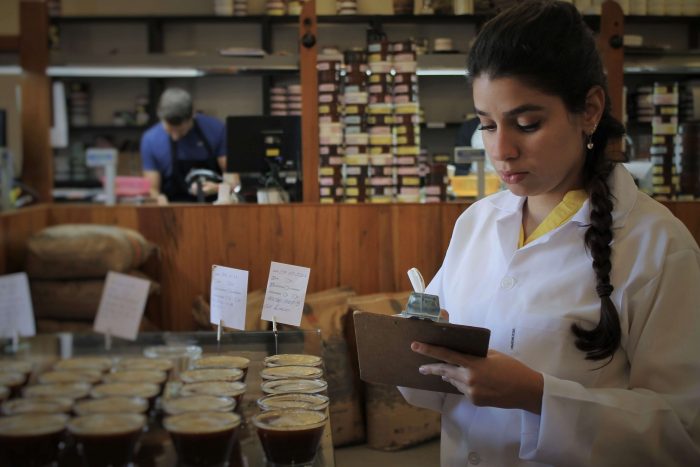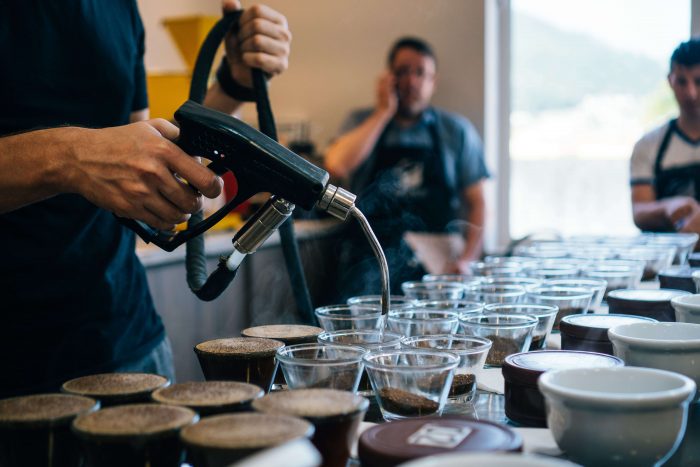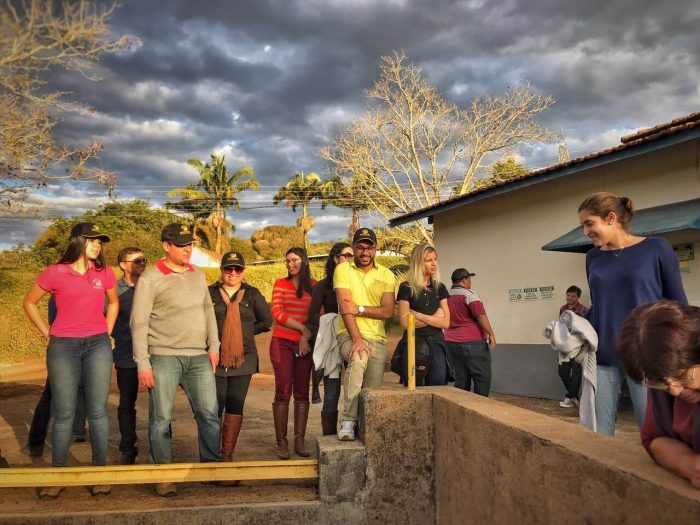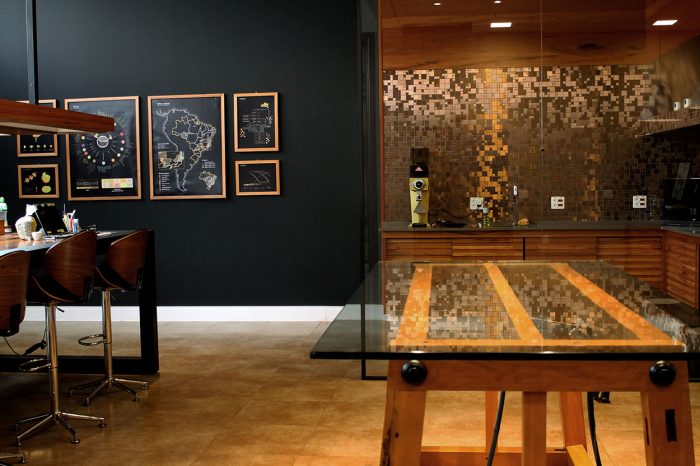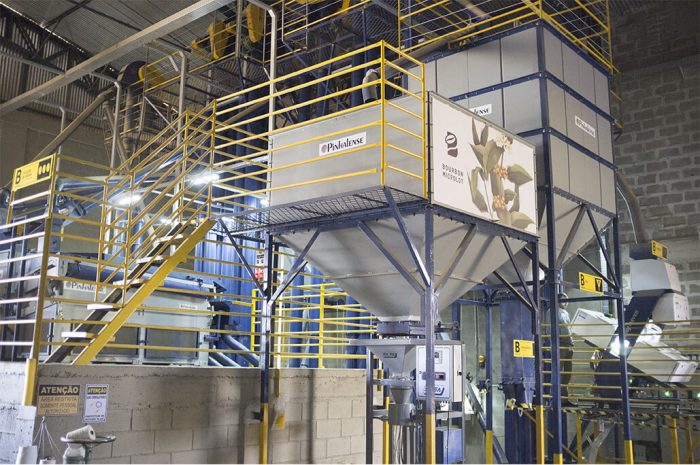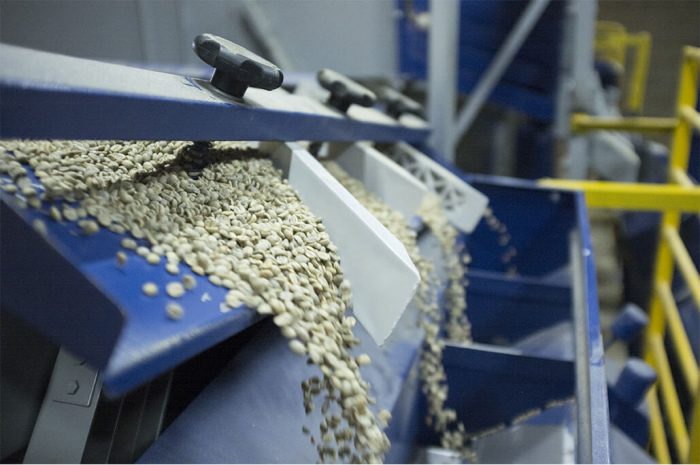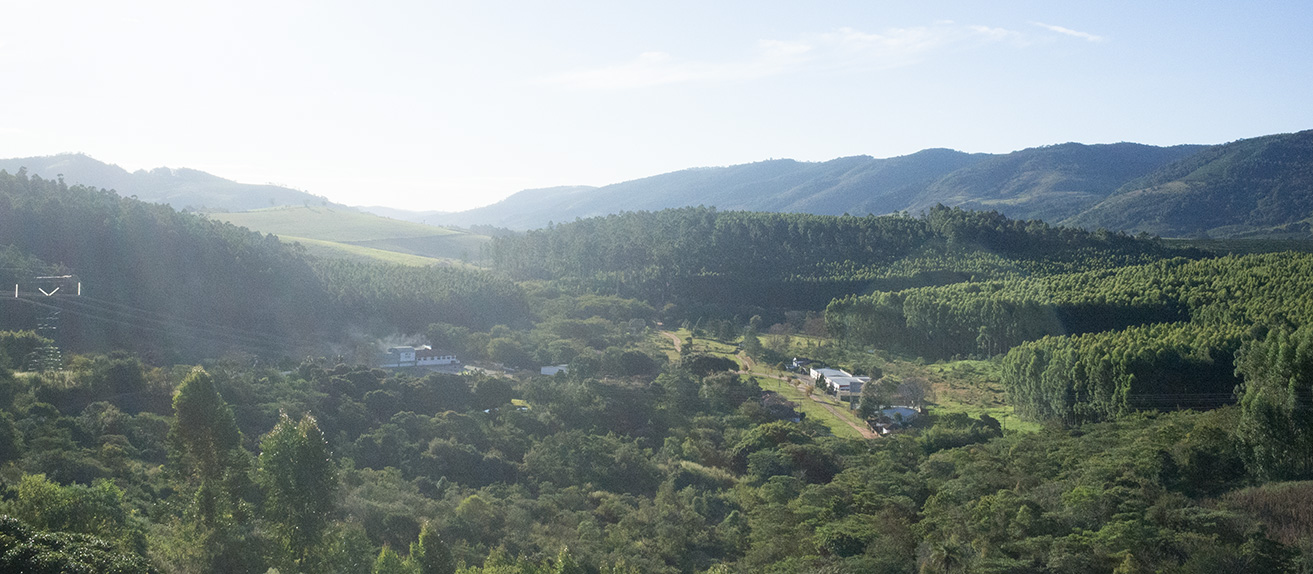
Consistency
From Vale da Grama to the World

From a family business trading 5 containers per year, Bourbon expanded to 350 thousand bags per year in the last 2 decades. Investing in quality, innovation and technology has made the company the pioneer in the specialty coffee market in Brazil.
It all started with two cousins who came from coffee producing families realizing the potential of their product after winning two contests in 1999, Cup of Excellence and Illy. In 2000, Gabriel de Carvalho Dias and Cristiano Ottoni gathered to launch Bourbon.
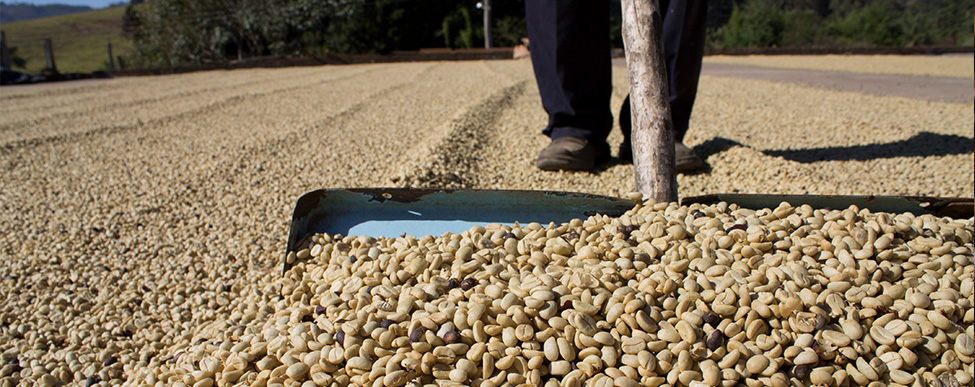
Inauguration
With a five-person team, a 70-square-meter office in Poços de Caldas and an initial investment of the equivalent of USD 50 thousand today, the company started working intensively with specialty coffee exportation from farms in Vale da Grama and some in Poços de Caldas, believing in the business since its inception.

Processing development
As agronomists, they were responsible for introducing new technologies, procedures and equipment to improve substantially the final sensorial profile in the cup. Back then traveling to other origins, bringing the scientific studies and all the technology available at that time to the field, allowed Bourbon, as a company, to be upfront about quality. “Pulped cherries and selective picking were a joke among our neighbors in that time,” says Cristiano.

Sustainability
In 2011 Bourbon created a department focused specifically on certifications. Social and environmental issues are as important as processing coffee methods for quality. Sustainability, however, involves much more than ecological issues, it also takes care of the social segment of the coffee operations.

Keep innovating
Local quality contests, close relationships with producers, investing in local offices in different regions and partnerships with scientific institutions are the key to maintaining Bourbon as a pioneer in the specialty market. New technologies such as the paper packaging that maintains bean quality longer; traceability systems; humidity control at the warehouse and the fermentation trials carried out together with the Federal University of Lavras (UFLA) are examples of this commitment to quality.

The Microlot Project
With the mission to have unique coffee profiles in its portfolio, Bourbon launched the Microlot project to meet specific demands for singular coffees that started growing (click here to learn more). “When we support and stimulate producers to make exceptional lots, the whole production registers a quality improvement,” says Cristiano.

Experimental Farm
At the end of 2016, Bourbon took over administration of the Cachoeira da Grama farm, transforming it in a processing center and also fields of research and development regarding varieties, picking, processing and drying with a 100% focus on quality and how it can be improved, with the goal to become a reference for quality.

15
Professional coffee tasters
01
Food Engineer
33
Workers at the office and 29 more at the dry mill
2.000
Coffee producers spread all over Brazil (Bourbon's partners)
02
Local Contests
06
Labs and purchasing offices in the different regions where Bourbon works
04
Owned dry mills to standardize sorting procedures
05
Partner warehouses to receive the coffees
500
Importers and roasters
Team and Structure
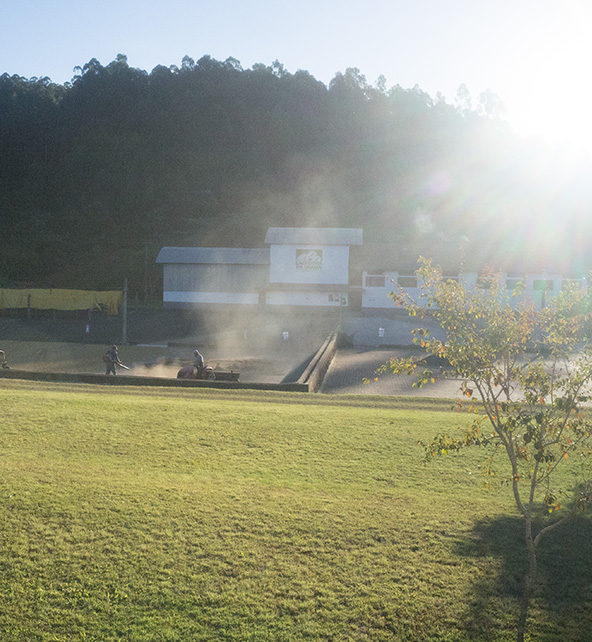
As a team, Bourbon trains and encourages professionals to work together in order to meet the demand of many importers and roasters around the world. Our employees are involved in the entire operation, constantly aiming to provide the best coffees. Considering the direct staff, the team is composed by: 15 professional coffee tasters among all our regions, 1 food engineer focused on research and protocols, 33 people dedicated to the administrative, logistics, sustainability, commercial and quality departments at our headquarters and 29 more at the warehouse in Poços de Caldas.
These professionals have great infrastructure to maintain and improve quality standards. Modern labs in the local offices and a special one for the Microlot Project are used to meticulously analyze each coffee lot. Also, warehouses feature traceability software and acclimatization equipment, including a separated dry mill also to sort only Microlots.

